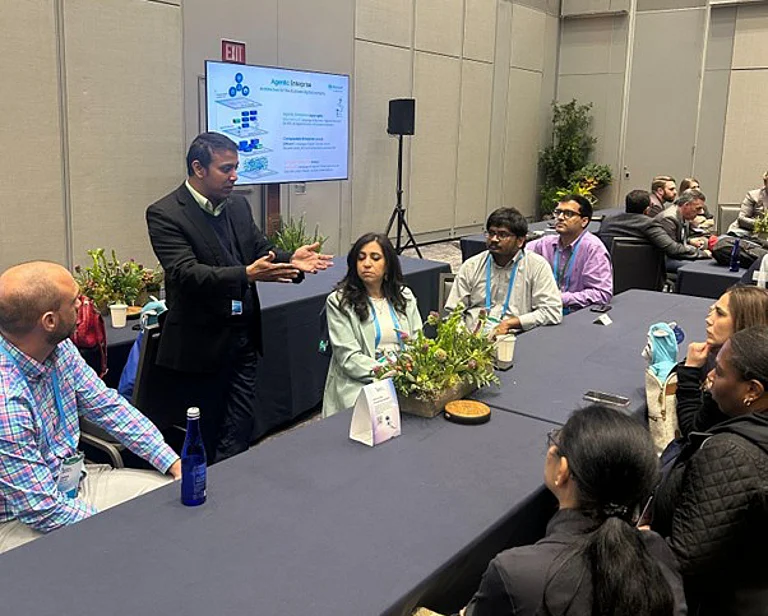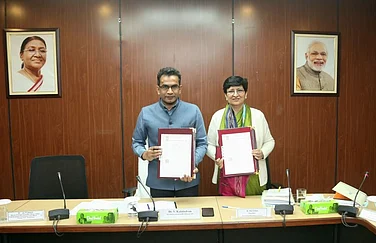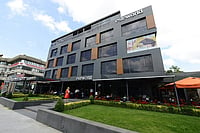As the global population ages, cognitive decline in geriatric patients has emerged as a pressing health concern. Isha Bhonde, an experienced physical therapist and advocate for holistic elder care, has been exploring how physical therapy can serve as a powerful tool in mitigating cognitive deterioration among older adults. Drawing from her extensive experience and research, Isha underscores the importance of addressing cognitive health through targeted physical interventions and the development of multidisciplinary support systems.
The Link Between Physical Activity and Cognitive Health
Isha Bhonde emphasizes that while cognitive decline in older adults is complex and multifaceted, physical activity plays an indispensable role in maintaining mental agility. Physical therapy, according to Isha, is not just about preserving mobility; it also contributes significantly to cognitive function. Studies support her view, revealing that physical activity enhances blood flow to the brain, increases neuroplasticity, and stimulates the release of beneficial neurotransmitters like serotonin and dopamine. These changes collectively help delay the onset of conditions like dementia and Alzheimer’s disease, while also enhancing mood and reducing stress levels.
Physical Therapy as a Holistic Approach to Cognitive Decline
Isha believes that physical therapy, when applied strategically, can extend beyond merely addressing physical ailments to create a holistic, brain-boosting regimen for elderly patients. Her approach incorporates both mental and physical exercises into therapeutic sessions. For instance, exercises involving hand-eye coordination, balance, and rhythmic movements, such as Tai Chi, have been shown to improve memory and executive function. According to Isha, these types of activities encourage patients to focus, thus honing attention and concentration.
"Traditional cognitive exercises, like puzzles, are valuable, but combining them with physical activities creates a more potent impact," says Isha. "Patients engaged in dual-task exercises—those that require physical movement and cognitive engagement—are more likely to see improvements in memory retention and problem-solving skills."
Customizing Therapy Plans for Individual Needs
In her work, Isha Bhonde stresses that geriatric patients are not a homogenous group and that therapy plans should reflect the unique cognitive and physical needs of each individual. For example, older adults with mild cognitive impairment (MCI) may benefit from higher-intensity exercises, while those with advanced dementia may require gentler activities. Isha advocates for the use of cognitive assessments to guide the creation of personalized therapy programs, ensuring that each patient receives a tailored approach that respects their capabilities and limitations.
"Patient-centered care is at the heart of effective physical therapy for cognitive decline," Isha explains. "Therapy that is too challenging can lead to frustration, while exercises that are too simplistic may offer limited benefit. The right balance is key to motivating patients and keeping their brains active."
Incorporating Social Interaction into Physical Therapy
Social interaction is another critical element of cognitive health, and Isha points out that group physical therapy sessions offer the dual benefits of exercise and social engagement. Participating in group exercises, whether it's dance therapy, chair aerobics, or guided stretching, enables patients to foster meaningful relationships, which has been linked to slower cognitive decline. Isolation is a common problem among geriatric patients, and the inclusion of social elements in physical therapy helps alleviate loneliness, ultimately supporting mental well-being.
"Social activities have shown great promise in keeping cognitive decline at bay," she notes. "Group sessions encourage communication, recall of instructions, and simple camaraderie—all of which are essential for cognitive engagement."
The Role of Caregiver and Family Involvement
Isha stresses the importance of caregiver education and family involvement in the success of physical therapy for geriatric patients. Often, the therapy session is just one part of a patient’s day, and the effectiveness of the intervention is greatly enhanced when caregivers and family members actively support and reinforce the patient’s exercises and routines. This approach ensures that therapy continues outside of the clinical setting, creating a nurturing environment where cognitive health is prioritized.
Isha advises caregivers to encourage at-home activities like gardening, walking, and light aerobic exercises, which can help maintain the patient’s progress. "Caregivers are vital partners in the therapeutic process. Their engagement and encouragement provide the emotional support that makes physical therapy effective in the long term," she says.
Research and Future Directions
Looking ahead, Isha Bhonde is a strong proponent of research exploring the intersection between physical therapy and cognitive health. She sees a promising future where physical therapy could become a central component in cognitive care programs. As studies increasingly support the idea that physical activity directly impacts cognitive function, Isha advocates for more interdisciplinary collaboration to refine and expand physical therapy approaches in geriatric care.
"With advancements in cognitive science and physical therapy, we have the potential to create highly effective, non-pharmaceutical interventions for cognitive decline," she says. "Our goal should be to offer comprehensive care that enhances both quality of life and mental well-being."
Conclusion
Isha Bhonde’s insights into addressing cognitive decline in geriatric patients with physical therapy underscore the power of an integrative, patient-centered approach. By merging physical activity with mental engagement, social interaction, and family involvement, physical therapy emerges as a powerful tool for supporting cognitive health in older adults. Isha’s perspective highlights the importance of ongoing innovation, research, and compassion in geriatric care, with a view toward providing elderly patients with the resources they need to live fuller, healthier lives. Through her work, Isha continues to advocate for physical therapy as an essential component in addressing cognitive decline, paving the way for more effective and holistic approaches to elder care.


























